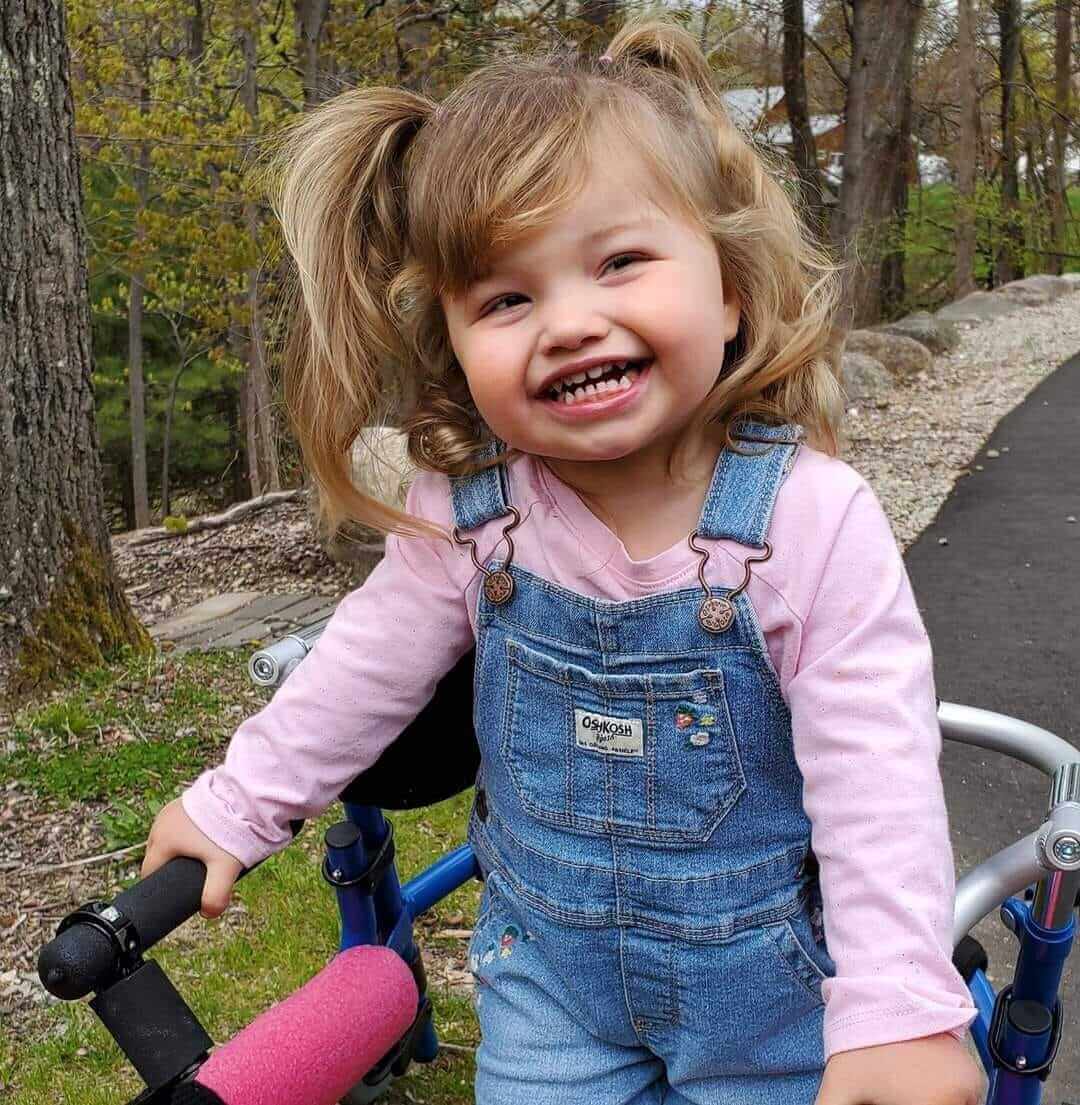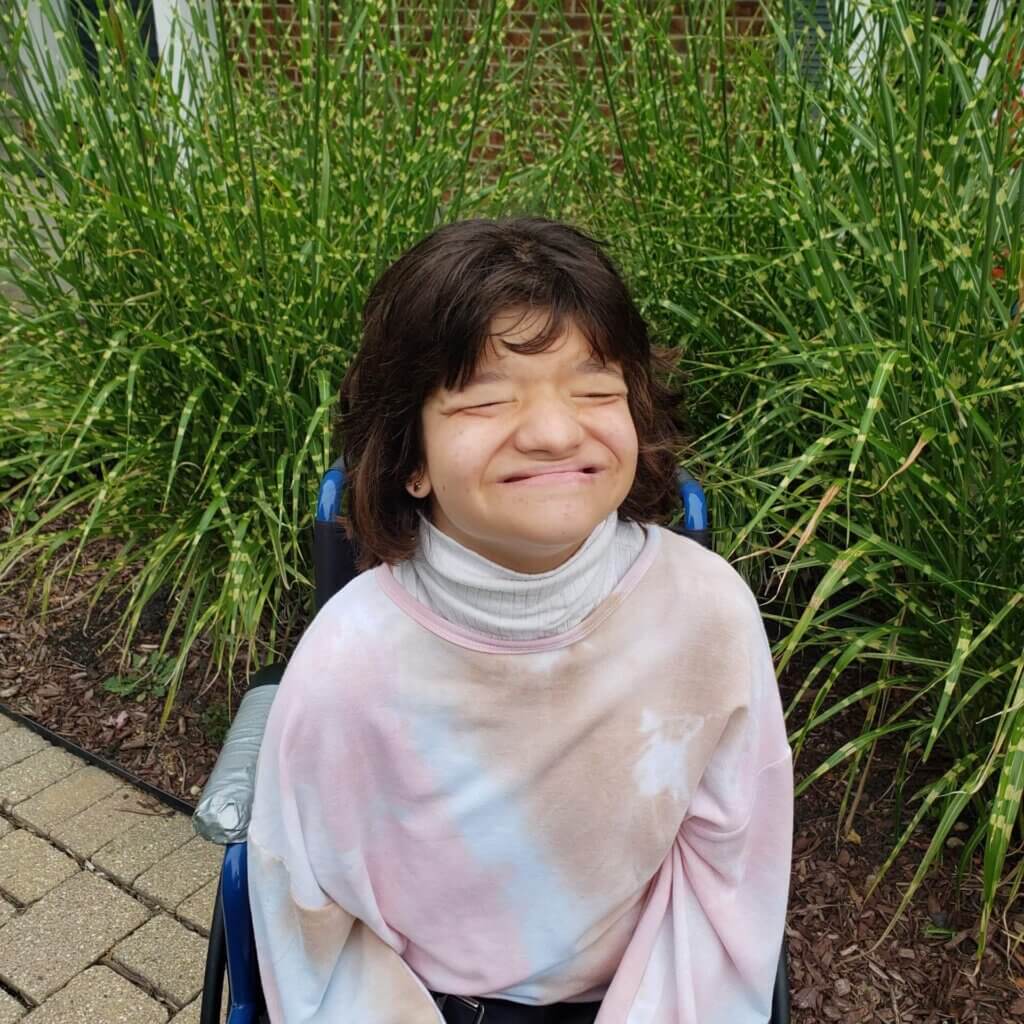Your Team of Experts
Health management for folks with JS can be confusing and overwhelming. It can be difficult to understand the many types of specialty care and therapies. To help with the confusion, we included a list of medical providers and therapists who may show up at some point in the life of anyone with JS.
This page is not a substitute for medical advice. Be sure to talk to a primary care provider to determine which specialists are appropriate for you or your loved one.



Providers you Trust
Developing a team of medical providers you trust to provide care for your child with JS can feel daunting and overwhelming. There seems to be an -ology for just about everything! To make things even more confusing, sometimes doctors combine their focuses and add their -ologies together to create more specializations (e.g. neurogenetics or neuro-ophthalmology). Here is a list of -ologists to consider when putting together your team of experts.
medical Providers
These physicians treat people suffering from allergies and diseases of the respiratory tract or immune system. They may help manage common diseases such as asthma, food and drug allergies, immune deficiencies, and diseases of the lung.
Anesthesiologists are most commonly known as the doctor that puts you to sleep for surgery. They can also be very helpful managing pain symptoms or syndromes.
Cardiologists focus on the treatment of the heart and blood vessels. They determine plans of care for children with structural heart defects.
Dermatologists treat disorders of the skin, hair, nails, and mucous membranes. They diagnose everything from skin cancer, tumors, inflammatory diseases of the skin and infectious diseases.
These specialty doctors treat children with learning or behavioral challenges or developmental delays. Developmental pediatricians tend to view a child holistically and can often help families plan for the future needs of the child.
This specialist has special training to diagnosis illness or abnormalities seen on x-rays, ultrasounds, CT scans or MRIs. This may be the physician that noted your child’s molar tooth sign
The endocrine system produces and secretes hormones that control and regulate nearly all of the body’s functions including growth, metabolism and movement. An endocrinologist manages disorders of these functions.
These doctors provide integrated, comprehensive, holistic health care to patients of all ages.
Gastroenterologists or “GI” doctors treat the functions and diseases of the digestive system. GI doctors can help manage children requiring feeding tubes. They often help monitor our children who have liver involvement.
A medical geneticist is a physician who treats inherited disorders and diagnoses diseases that are caused by genetic defects. Medical geneticists provide families with specialized counseling and education as well as helping them cope with their genetic disorder.
A nephrologist treats kidney or renal diseases or abnormalities. When a child with JS develops kidney disease, a nephrologist can be helpful to monitor lab values and determine the extent of kidney damage. They can also determine if or when dialysis or transplantation may be necessary.
Neurologists diagnose and treat diseases of the brain, spinal cord, peripheral nerves, muscles, autonomic nervous system, and blood vessels. Neurology is a common “first referral” for children with JS.
OB/GYNs care for the female reproductive system and associated disorders. Some families are referred to a Maternal Fetal Medicine physician during pregnancy if abnormalities are seen on the fetal ultrasound. MFM referrals are also common in subsequent pregnancies of a family affected by JS.
Physicians specializing in ophthalmology provide comprehensive medical and surgical care of the eyes as well as diagnose and treat vision problems. They may treat strabismus, ptosis, nystagmus, coloboma or other abnormalities frequently seen with JS.
An optometrist is a healthcare professional who provides basic vision care including eye exams, vision testing and prescriptions for glasses or contacts. An optometrist can also detect some eye abnormalities and prescribe medications for certain eye conditions.
Congenital or functional abnormalities of the musculoskeletal system including bones, muscles, and ligaments are treated by an orthopedic physician. Sometimes “ortho” doctors help children with JS by recommending or prescribing orthotic or braces.
Otolaryngologists, more commonly referred to as ENTs or “ear, nose and throat” specialists, treat people with airway challenges, sinus problems and allergies.
Physicians specializing in the care of children are called pediatricians. Pediatricians practice preventative medicine and also diagnose common childhood diseases, such as asthma, allergies, and croup. The pediatrician will also monitor your child’s development.
A psychiatrist specializes in mental health and treats emotional and behavioral problems through a combination of personal counseling and medication management.
A psychologist is someone who studies mental processes and human behavior by observing, interpreting, and recording how people relate to one another and the environment. Psychologists can be helpful in diagnosing mood disorders or behavioral challenges in children.
Pulmonology deals with diseases and abnormalities of the lungs and respiratory system. In children with JS, a pulmonologist may be helpful to manage respiratory symptoms including apnea or “floppy” airways. A pulmonologist is a critical member of the team for children needing home oxygen or tracheostomies.
Urology involves the male and female urinary systems, including kidneys, ureters, bladder, and urethra. It also deals with the male sex organs.
therapists
Assistive technology (AT) is any item, piece of equipment, software program, or product system that is used to increase, maintain, or improve the functional capabilities of persons with disabilities. AT helps people who have difficulty speaking, typing, writing, remembering, pointing, seeing, hearing, learning, walking, and many other things. AT can include communication boards or devices, adaptive electronic devices or software and a variety of specialized learning materials or curriculum aids.
Behavior therapy teaches children and families how to improve positive behaviors and reduce unwanted, problematic behaviors. With JS, our children often develop challenging behaviors during childhood as a result of cognitive and sensory processing disorders. Examples of these behaviors can include head banging, biting, hitting or kicking. In older children, property damage, mood swings, anxiety, and dishonesty can lead to disruption for the entire household. There are three basic types of behavioral therapy:
- Applied behavior analysis (ABA) is a therapy based on the science of learning and behavior with a goal to increase behaviors that are helpful and decrease behaviors that are harmful or unwanted. ABA has been well-researched and found to improve attention, focus, social skills, memory, and academics. Therapy can be helpful to increase language and communication skills while decreasing unwanted behaviors. ABA has also been helpful to reduce self-injurious behaviors in children with developmental delays or autism.
- Cognitive Behavioral Therapy (CBT) assesses the relationship between thoughts, feelings, and behaviors. A therapist may help children identify their basic emotions and responses to these emotions while developing age-appropriate coping skills.
- Dialectal Behavioral Therapy (DBT) works well for children who are sensitive to emotional stimuli. Through DBT, children learn emotional regulation, distress tolerance, and mindfulness to help improve behaviors.
Developmental therapy assesses global child development, generally in children under the age of five. DTs assess how the child interacts with their environment by examining cognitive skills, language and communication, social-emotional skills, behaviors, gross and fine motor skills, as well as self-help skills. Interventions for developmental therapy may include play activities, social interactions and practicing self-care.
Massage therapy can be used in a variety of ways and settings. The use of massage has been well researched and benefits can include reduction in anxiety and stress hormones as well as improved sleep and behavior. Massage can also help with physical limitations to increase range of motion, strength, and flexibility.
Music therapy uses the various elements of music to allow people to express emotion, regulate mood, and enhance communication. Music therapy can include listening to music, singing, playing an instrument, or moving to music.
Having a registered dietician on your child’s team can be ideal to ensure appropriate growth and development throughout childhood. Some children with JS struggle to eat by mouth or gain weight appropriately. These clinicians can help families manage functional feeding difficulties, failure to thrive, or other special dietary considerations.
An occupational therapist works with children to improve fine and gross motor skills and motor planning. This therapy often starts in infancy and can last well into adulthood. In infancy, the therapist may work on tasks such as helping your baby bring his or her hands together, grasp objects, or begin to eat baby foods. As your child grows, the therapist may help your child with daily activities such as getting dressed, writing, or doing household chores. Some children with JS have difficulty with how their bodies interact with the environment. OT can help those children who struggle with sensory processing and self-regulation.
Physical therapy helps children learn to move within their environment through range of motion, strengthening, and flexibility. Starting in infancy and lasting into adulthood, therapy goals may include learning to hold his or her head up, to roll over, to sit up independently, to crawl, to stand or to walk. PT helps with coordination, balance and overall core strength, all of which can be challenging for children with JS.
Recreation therapy or therapeutic recreation aims to engage a person in different activities in order to enhance function, independence, and overall wellbeing. Recreational therapy may include arts and crafts, animals, sports, games, dance and movement, drama, music, and community outings. Recreational therapists treat and help maintain the physical, mental, and emotional well-being of a child to reduce depression, stress, and anxiety; enhance basic motor functioning and cognitive reasoning abilities; build confidence; and improve social skills.
When most of us hear the term “speech therapy”, we think about children who are having a difficult time speaking. While SLP do work with children who have difficulty making sounds or saying words correctly, they also can work with children who have difficulty understanding or processing spoken language. This can be referred to as receptive or expressive language disorders. In infancy, an SLP may help infants who are learning to feed by mouth or have difficulty swallowing.
Vision therapy or vision training aims to improve the quality and efficiency of vision. Kids with JS frequently experience ocular motor apraxia, strabismus, and nystagmus, all of which affect muscle control and coordination of the eye muscles. Visual therapy often uses therapeutic lenses, prisms, or patches to help develop and improve how visual information is interpreted by the brain.
Complementary and Alternative Medicine (CAM)
CAM is a general term for health care approaches that are not typically part of conventional medical care or that may have origins outside of usual Western practice. JSRDF does not endorse the use of any of these therapies. Before starting any of these methods, please consult your doctor or health care team.
Both acupuncture and acupressure come from traditional Chinese medicine, which focuses on the idea that the body’s energy flows through certain points of the body to connect to specific organs. In conjunction with traditional medicine, these techniques have been used to treat many symptoms including allergies, anxiety, depression, migraines, and nausea. While there is no substantial research about the benefits of acupuncture or acupressure in children with genetic disorders or developmental delays, these treatments may help control hormone levels and improve immune function.
Hydrotherapy or water therapy has been shown to help children with sensory processing disorders or vestibular issues by providing a gentle, soothing physical environment.
Aromatherapy is believed to work by stimulating smell receptors in the nose, which then send messages through the nervous system to the limbic system, the part of the brain that controls emotions. Essential oils used in aromatherapy are typically extracted from various parts of plants and then distilled. Oils are frequently inhaled, applied on the skin, or taken orally. Though research is limited, some benefits of aromatherapy may include decreased anxiety, depression, or pain; improvement in sleep, and improvement in overall quality of life.
There is existing research on the use of special diets for children with seizure disorders, psychological problems, autism, and developmental delays. Some of these diets include gluten-free, casein-free, ketogenic, and whole foods. This article has a list of the most frequently used diets among children with special needs: Top ten diets for children with special needs Please consult your health care team if you are considering a dietary modification.
Dietary supplements, vitamins, minerals, and herbs can be used in a variety of ways to enhance nutrition or to treat specific symptoms or conditions. This collection of fact sheets and other resources from the NIH Office of Dietary Supplements presents information about dietary supplements and their ingredients: NIH Dietary Supplements
EAT can be used to promote physical, occupational, and emotional growth in persons suffering from a variety of symptoms and disorders including developmental delays, behavioral issues, and mental health concerns. Riding on a horse activates and stimulates a variety of sensations and muscle groups to provide holistic benefits for the rider. Physical benefits to EAT can include improvement in muscle tone, strength, endurance, balance, range of motion, coordination, and posture. People can also build confidence, improve communication and social skills, develop trust and better impulse control, and learn boundaries.
The Feldenkrais Method® is an approach to working with people which expands their repertoire of movements, enhances awareness, improves function, and enables people to express themselves more fully. This method uses slow, mindful movements to achieve powerful effects in terms of strength, flexibility, and holistic integration of body and mind. These improvements will often enhance thinking, emotional regulation, and problem-solving capabilities.
Social skills training is a collection of practices that use a behavioral approach for teaching children age-appropriate social skills and competencies, including communication, problem solving, decision making, self-management, and peer relations. Social skills training can occur in education or therapy settings and are individualized to a child’s needs.
Brushing is often utilized as part of a sensory integration or sensory therapy program. It involves use of a small, soft brush which is firmly rubbed over the child’s skin. Though there is not much research on the Wilbarger Protocol, some parents have reported decreases in sensory defensiveness and anxiety when using this technique. Some other benefits may include improved ability to transition between daily activities, improved attention span, decreased sensory aversion, improved coordination, and better self-regulation.
Yoga is a mind and body approach that can increase a person’s sense of well-being. Yoga can also increase flexibility, core strength, and range of motion. Some people also have a decreased sense of anxiety when practicing yoga regularly.



